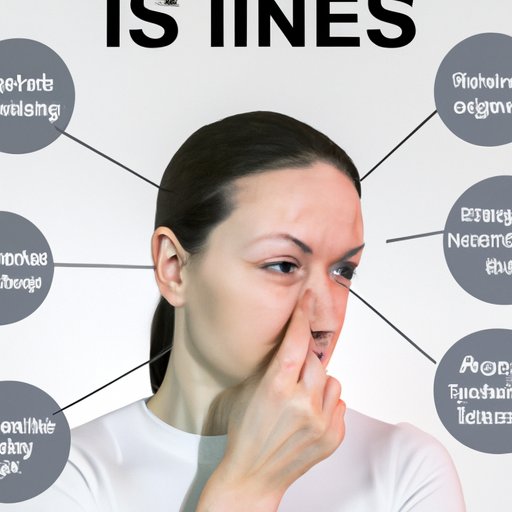Introduction
Sinus infections, also known as sinusitis, can be uncomfortable and painful. They occur when the air-filled cavities in the skull get inflamed, leading to a buildup of mucus and pressure in the sinuses. If left untreated, sinus infections can cause severe complications such as meningitis and brain abscess. In this article, we will examine the causes, symptoms, and treatment options for sinus infections.
Anatomy and function of the sinuses
The sinuses are a system of air-filled cavities located behind the forehead, nose, cheeks, and eyes. They are lined with a thin membrane that produces mucus to moisturize the air we breathe in. The sinuses also help regulate the temperature and humidity of the air we inhale, trap dust and pollutants, and make our voices sound richer. However, various environmental factors can cause inflammation of the sinus membrane, leading to sinus infections. These include:
- Allergies
- Pollution
- Changes in air pressure (such as flying or diving)
- Smoke and other irritants
Types of infections that cause sinus infections
Sinus infections can be caused by several types of infections that enter the body through the air we breathe or touch. These infections can include:
- Viral infections:
- Bacterial infections:
- Fungal infections:
The common cold is the most frequent viral infection that can lead to sinusitis. Other viral infections that can cause the condition include the flu and the COVID-19.
Bacteria can invade the sinus cavities and cause persistent inflammation and infection. Some of the common bacteria that cause sinusitis include Streptococcus pneumoniae, Haemophilus influenzae, and Moraxella catarrhalis.
Fungal sinus infections are uncommon but occur primarily in people with weakened immune systems, such as those with HIV/AIDS or undergoing chemotherapy.
Tips for avoiding sinus infections
Prevention is key to avoiding sinus infections. Here are some tips on how to reduce your chances of getting sinus infections:
- Use a humidifier to keep your nasal passages moist.
- Avoid smoke and other irritants that can cause sinus irritation and inflammation.
- Wash your hands regularly to avoid transmitting or catching germs.
- Use nasal irrigation or saline sprays to flush out your sinuses.
- Manage your allergies to keep nasal inflammation at bay.
Symptoms of sinus infections
Symptoms of sinus infections can vary depending on the type and severity of the infection. However, the common symptoms of sinusitis include:
- Facial pain or pressure, especially around the nose, cheeks, and forehead
- Congestion that makes it hard to breathe, talk or smell
- Post-nasal drip that causes a sore throat or coughing
- Headache and earache
- Fever and fatigue
Treatment options for sinus infections
Several treatment options are available for sinus infections, depending on the cause and severity of the sinusitis. These include:
- Over-the-counter remedies: Saline rinses and nasal sprays can help flush out your sinuses and reduce inflammation. Using decongestants and painkillers such as acetaminophen or ibuprofen can also help relieve sinus pressure and pain
- Prescription medications: Antibiotics are usually prescribed for bacterial sinusitis. Antifungal medications may be recommended for fungal infections. Steroids can help reduce inflammation and swelling
- Home remedies: steam therapy, warm compresses, drinking fluids, and inhaling steam can all help relieve sinusitis symptoms naturally.
Conclusion
Sinus infections can affect anyone, but the good news is that they are preventable and usually treatable. By keeping your nasal passages moist, avoiding irritants, and practicing good hygiene, you can significantly reduce your chances of getting sinusitis. If you suspect you have a sinus infection and exhibit symptoms, visit your health professional for a proper diagnosis and treatment plan.
(Note: Is this article not meeting your expectations? Do you have knowledge or insights to share? Unlock new opportunities and expand your reach by joining our authors team. Click Registration to join us and share your expertise with our readers.)
